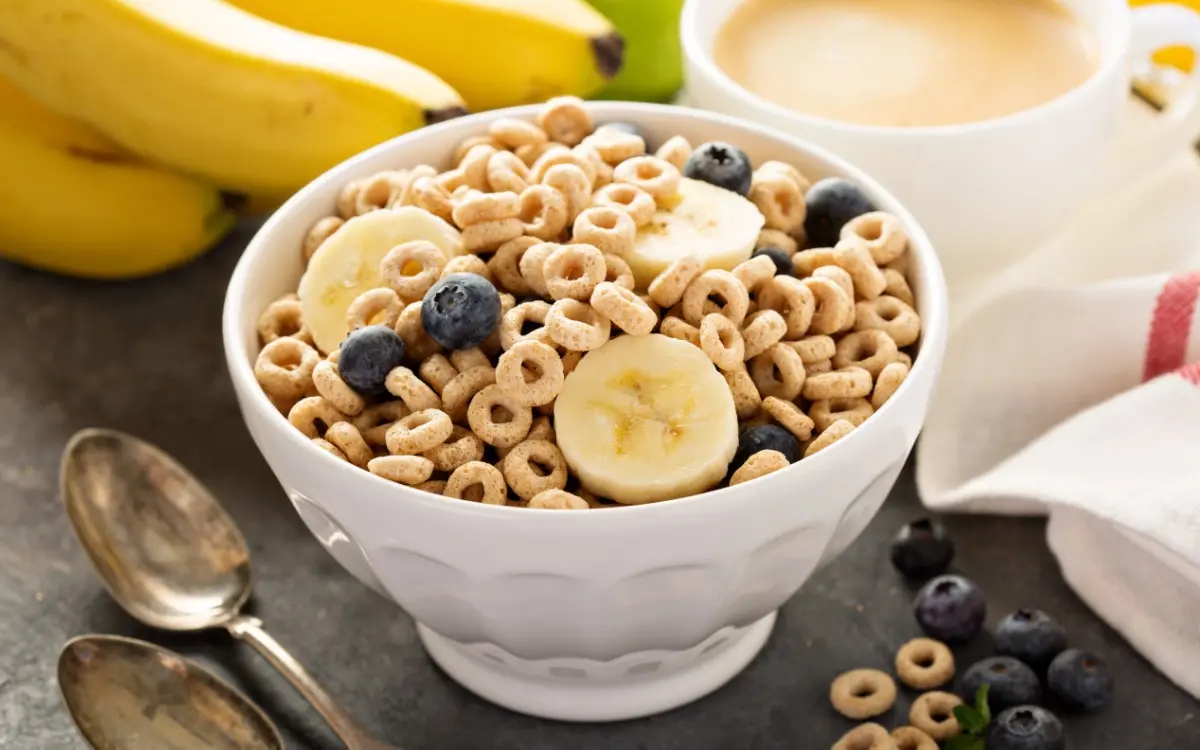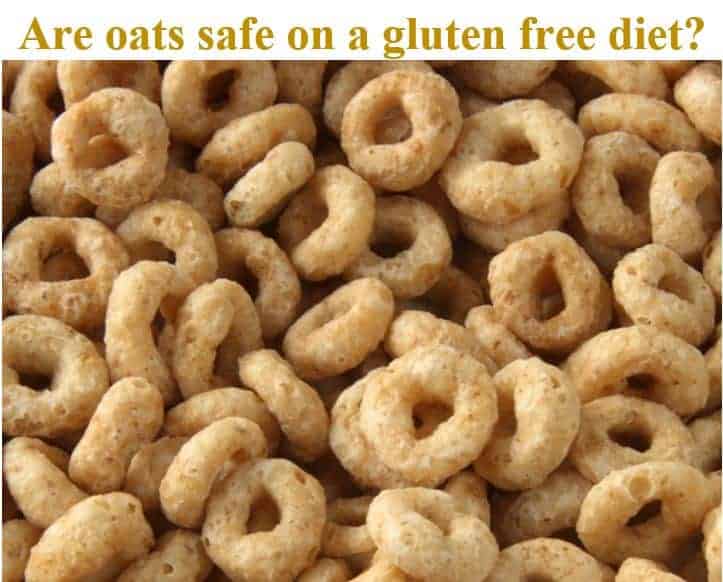new to the gluten free journey?
new to the gluten free journey?

Contents
Toggle Are Cheerios Gluten Free? General Mills issued a voluntary recall of Cheerios and Honey Nut Cheerios this week. The following was taken directly from Cheerios.com’s website after their “gluten-free” factory was contaminated with wheat.
“We are embarrassed & sorry to share an incident that occurred at our production facility in Lodi, California, that allowed wheat flour to enter our gluten-free oat-based system. As a result, original and Honey Nut Cheerios produced on several dates may contain wheat and were wrongly labeled gluten-free.
We are voluntarily recalling the products made on those dates at our Lodi facility and we ask you to check the “better if used by” code dates on your packages.
We want to reassure you that this was an isolated incident and we have implemented a solution to ensure that this will not happen again. The Cheerios and Honey Nut Cheerios produced at our other facilities are, and will continue to be, FDA-compliant and gluten-free. We’ll also continue to test products and our oat flour supply extensively to ensure our products meet the gluten-free standard. We care about what you and your family eat and we are truly sorry for this mistake. We will work extremely hard to earn back your trust.”
So far a few people have reported becoming ill after consuming the products. In this case, wheat contaminated the oats. This begged the question “Are Cheerios gluten-free?” Aside from the issue of cross-contamination, the bigger question that needs to be asked is – Are Oats Safe for Those With Gluten Sensitivity
Are Cheerios Gluten Free? General Mills issued a voluntary recall of Cheerios and Honey Nut Cheerios this week. The following was taken directly from Cheerios.com’s website after their “gluten-free” factory was contaminated with wheat.
“We are embarrassed & sorry to share an incident that occurred at our production facility in Lodi, California, that allowed wheat flour to enter our gluten-free oat-based system. As a result, original and Honey Nut Cheerios produced on several dates may contain wheat and were wrongly labeled gluten-free.
We are voluntarily recalling the products made on those dates at our Lodi facility and we ask you to check the “better if used by” code dates on your packages.
We want to reassure you that this was an isolated incident and we have implemented a solution to ensure that this will not happen again. The Cheerios and Honey Nut Cheerios produced at our other facilities are, and will continue to be, FDA-compliant and gluten-free. We’ll also continue to test products and our oat flour supply extensively to ensure our products meet the gluten-free standard. We care about what you and your family eat and we are truly sorry for this mistake. We will work extremely hard to earn back your trust.”
So far a few people have reported becoming ill after consuming the products. In this case, wheat contaminated the oats. This begged the question “Are Cheerios gluten-free?” Aside from the issue of cross-contamination, the bigger question that needs to be asked is – Are Oats Safe for Those With Gluten Sensitivity
 Oats are commonly recommended for those going on a gluten-free diet as a safe substitute food. The classic or traditional definition of gluten includes only wheat, barley, rye (sometimes oats, sometimes not). So the big question is – Should you eat oats if you have problems with gluten?
Oats are commonly recommended for those going on a gluten-free diet as a safe substitute food. The classic or traditional definition of gluten includes only wheat, barley, rye (sometimes oats, sometimes not). So the big question is – Should you eat oats if you have problems with gluten?
direct correlation of the immunogenicity of the different oat varieties with the toxicity of peptides present in their avenin sequences.In plain English please – Proteins in oat cereal stimulated an immune response similar to what is seen from wheat. The studies above were all published after Jan. of 2011. In medicine, it can take 20-30 years for new information to become common knowledge among doctors. So I don’t expect that many physicians will be talking about the potential for oat to be a problem for those with gluten sensitivity. That being said, let’s take a look at a comprehensive review of the medical literature that was published in 2011 compiling 75 studies published on the topic since 1953. The summary from the authors are quoted below:
Oats in a gluten-free diet increase the diet’s nutritional value, but their use remains controversial. Contamination with prolamins of other cereals is frequent, and some clinical and experimental studies support the view that a subgroup of celiac patients may be intolerant to pure oats. Thus, this issue is more complex than previously suggested. In order to produce oats that are safe for all celiac patients, the following topics should be addressed: selection of oat cultivars with low avenin content, research on such recombinant varieties of oats, development of assay methods to detect avenins in oat products, guidelines for the agricultural processing of oats and the manufacture of oat products, as well as guidelines for following up with celiac patients who consume oats.Resources:
Stay up-to-date with the latest articles, tips, recipes and more.

*These statements have not been evaluated by the Food and Drug Administration. This product is not intended to diagnose, treat, cure or prevent any disease.
If you are pregnant, nursing, taking medication, or have a medical condition, consult your physician before using this product.
The entire contents of this website are based upon the opinions of Peter Osborne, unless otherwise noted. Individual articles are based upon the opinions of the respective author, who retains copyright as marked. The information on this website is not intended to replace a one-on-one relationship with a qualified health care professional and is not intended as medical advice. It is intended as a sharing of knowledge and information from the research and experience of Peter Osborne and his community. Peter Osborne encourages you to make your own health care decisions based upon your research and in partnership with a qualified health care professional.
8 Responses
Now hopefully they will take off the infuriating TV commercials touting them to be GF.
I was told by my chiropractor never to eat grains because I have Graves’ disease .a thyroid condition,which is autoimmune.
It was hard to adapt at first but now I do not miss them at all.There are so many good foods out there and with the help of the Internet
it has made it easier to live with.Grains can destroy you has I have learnt.When are doctors going to be educated about all this!
I am interested in your findings on oats not being gluten free I have been eating gluten free oat biscuits and for two days running I have had quite severe headaches lasting all day
After I was diagnosed with Hashimoto’s and subsequent sensitivity to wheat (and other foods) I turned to oats. After an over-reliance on oats over several months, I began to break out into a rash that started on my neck that eventally moved all down my rib cage and back. It took a few weeks before I figured it out, but when I stopped eating so called “gluten free” oats, the rash went away. I thought oats were ok, but I’ve since learned they, too, contain glutnen. I Can’t eat them anymore or the rash comes back.
I seem to tolerate oats just fine. When I am exposed to gluten in something like traditionally crafted Roquefort cheese (made with ground up, moldy rye bread) or am not really careful about a sauce, etc., I will experience symptoms. I have never experienced any symptoms with oats.
I do appreciate General Mills. Their gluten-free Betty Crocker baking mixes are amazing. Someone at that company is on the ball. Of course, I mostly just eat naturally gluten free fresh, unprocessed foods. It’s just fun to have a treat once in awhile
After going gluten free, some years ago, I tried eating oats processed in a GF facillity. I had no noticeable reaction. I was really happy, so I started baking with oat flour-tastes great, and you can substitute one for one instead of reg. flour. But as soon as I ate the baked goods, in this case biscuits, I reacted badly with stomach cramps and diarrhea. Then I read you must be totally GF for one year, so your stomach has time to heal; then try the oats. So I waited one year, tried the oats in cookies, and again seamed fine. But when I tried biscuits again, same reaction as before. I can’t figure out the difference, except that maybe the whole oats were too big to digest? And then when I tried the finely ground flour, I reacted? Can’t figure any other reason to react to one, but not the other. I eventually learned about the elimination diet, and found out that ALL grains bother me, even quinoa.
Always made our own meals at home, rarely eating out when two young adult daughters developed autoimmune disease. One with IBS had gut issues since birth (which did clear (? not) during childhood) and began ‘passing out’ in high school. People who witnessed the events said it was more seizure like. After much research and a long wait for a rheumatologist appt, she began a gluten/grain free diet on her own and immediately the severe symptoms were gone. Today she fixes all of her own meals and is only experiencing IBS symptoms seldomly and never has any more seizures. The physician did not recommend any particular diet (negative celiac biopsies) but just felt that whatever worked is best. Anyone with inflammation should never consume polysaccharides.
I want to gluten free Hindi books.
This is for kind information.
Mukesh Kumar
9362406156